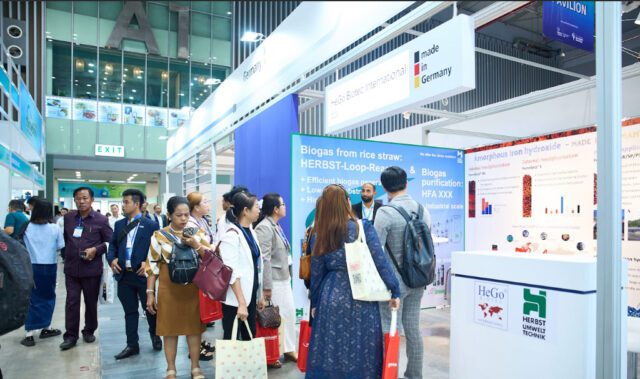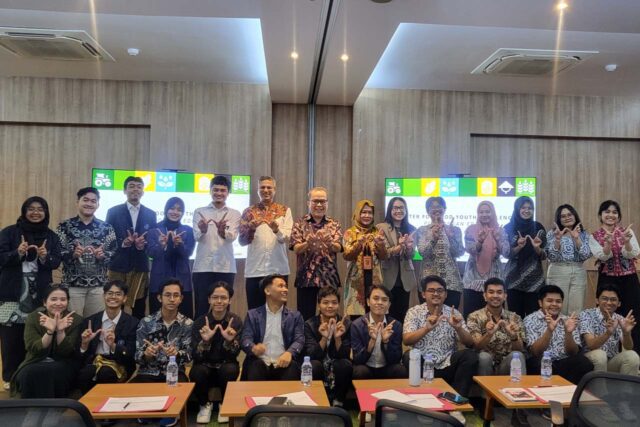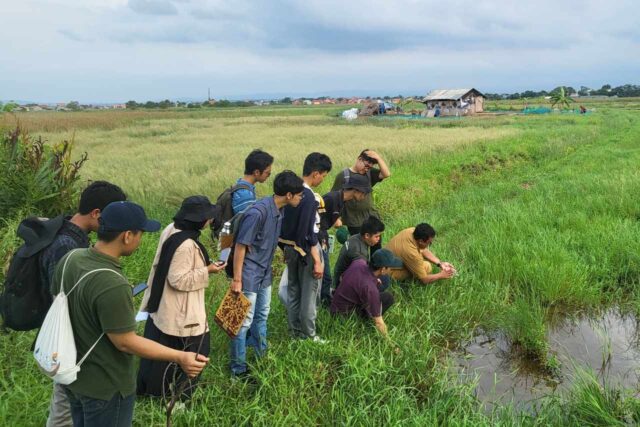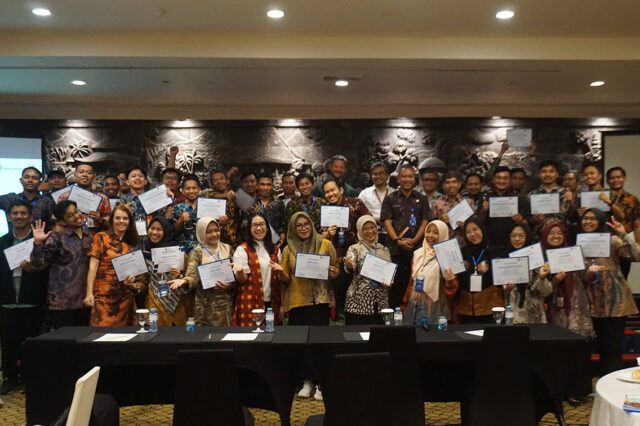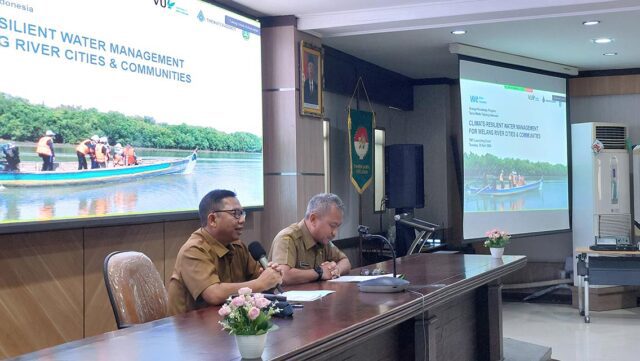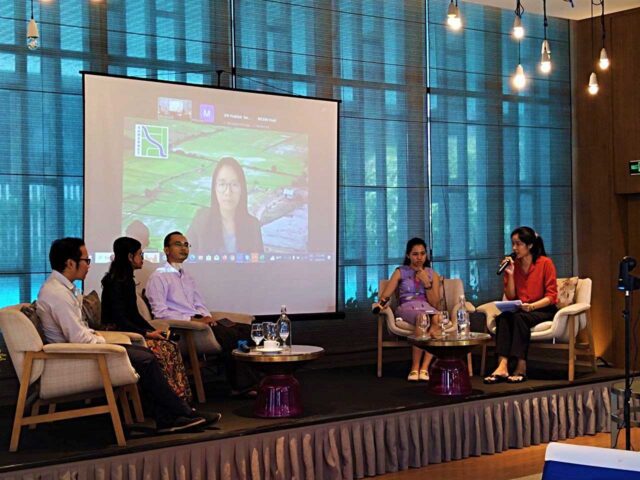Collaboration is key
Over 300 water-minded people travelled to the capital of the Republic of the Union of Myanmar to celebrate Myanmar’s World Water Day (5-6 March). It is a mean of focusing attention on the importance of freshwater and advocating for the sustainable management of freshwater resources. This year’s global theme is ‘leaving no one behind’.
The specific objectives of the Myanmar ‘World Water Day Celebration 2019’:
1.To boost the implementation of the Sustainable Development Goals (SDGs) through water sector star performance to fulfill the commitment of the Government of Myanmar
2.To raise the awareness on water sector reform process and to consolidate the National Water Resources Committee (NWRC) members
3. To accelerate the practice of “SDG (17): partnerships to achieve the goal”
Last year our team published all sessions of WWD2018 on the Myanmar Water Portal – including the ‘must see’ ten-minute overview video of the National Water Resources Committee (NWRC). This year the video is updated and will be shared hopefully afterwards. We also put the ‘spotlight’ on water professionals who are doing the important work in Myanmar. We provided a concept (platform) to let them share their experiences about their daily challenges and successes.
This year we are ‘just’ an engaged participant, and not so much involved in the reporting and publishing of the 124 (!) sessions. We are looking forward to receiving the outcomes and presentation of this years’ celebration to get most value out of the 48hrs gathering and to continue our collaborations.
This year we would like to put a ‘Spotlight’ on the following specific collaboration session:
Scientific Conference 2.2. Social Inclusiveness – Multi Stakeholders Forum (MSF) 05 March 2019
by chair: Dr Anna Shwe Hluan – Patron Water Mothers
Co-Chair: Dr. Hans Chr. Ammentorp – Team Leader, DHI-JV, C1-17 AIRBM
“Collaboration is a mind-set, and it’s easier said than done”. Dr Anna Shwe Hluan shared her experiences as a Water Mother but mostly as a concerned citizen: “It’s crucial to understand the multi-stakeholder groups at different levels (citizens, regional, union level) and we need to empower people to be able to help themselves”.
(check out also her inspirational keynote “Diversity brings Resilience” during Myanmar WWD celebration 06 March 2019)
I like to compliment the organizing committee of WWD 2019 as they have dedicated one full session (1 out of 9) on ‘Partnerships for the Goals’ (SDG17) or Multi Stakeholder partnerships. This is more than the current SDG allocation 😉 (1 out of 17). This session is very close to my heart as we (at The Water Agency) believe in stronger and more effective collaboration in the water sector.
The diversity of speakers was truly unique and provided a lot of concrete collaboration showcases. Hopefully the presentations will be shared to give you of more context 😉 on below notes.
1. Dr Thidar Khaing (Department of Chemistry) / 7. Dr Than Htike, Mandalay
Citizens in Myanmar are very concerned about local water management, and especially the quality of their (drinking) water. It’s important to focus (and learn) more about water-quality. The empowerment of citizens (using smartphones to measure water-quality locally) can be a game-changer, but unfortunately our ‘On the Spot’ proposal hasn’t been granted with funding yet.
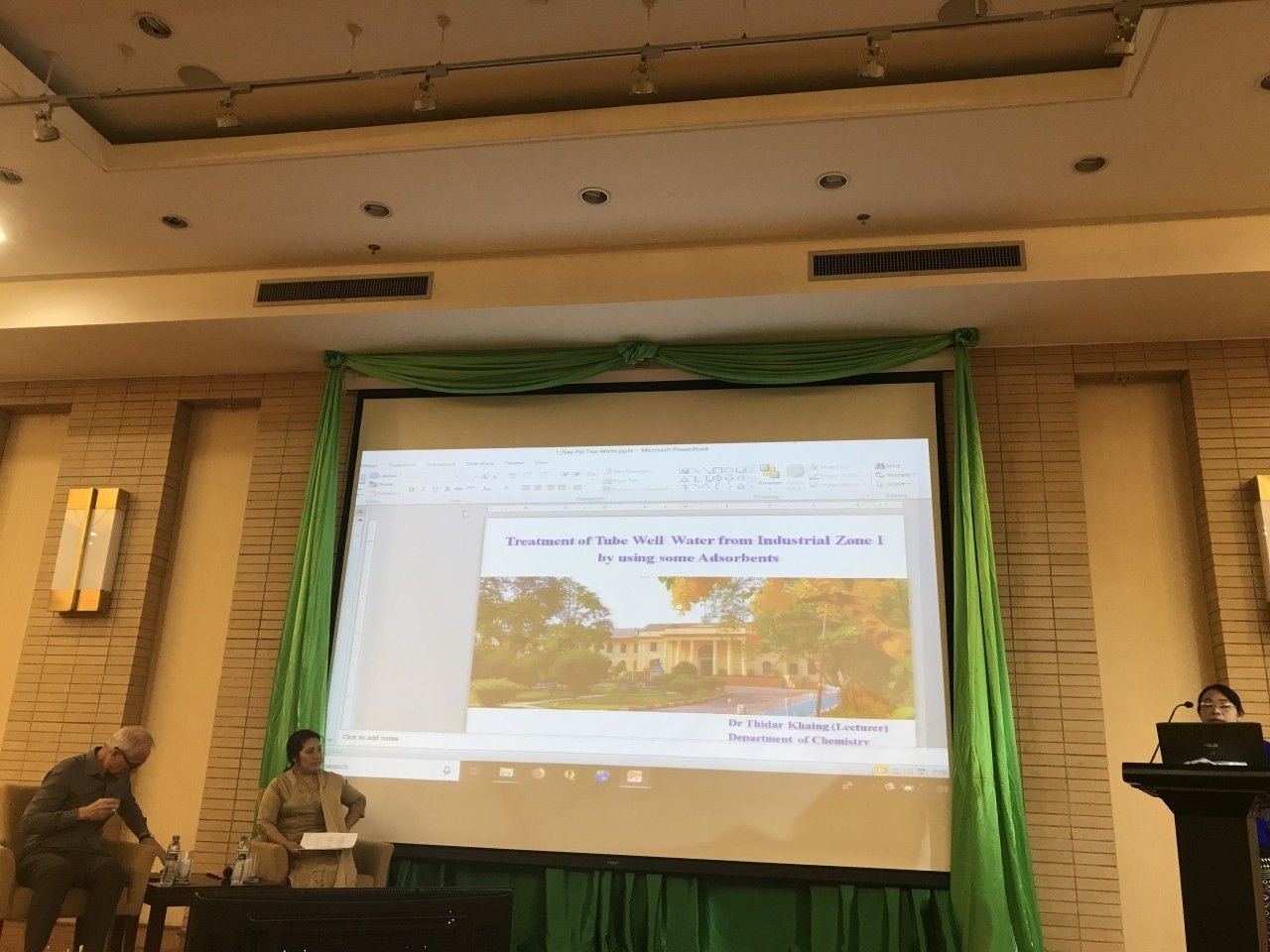
2. Dr Zaw Lwin tun (Myanmar Water Partnership – MmWP) “There is a conflict of interests in almost everything we do (e.g. Water Energy Food nexus)”, and collaboration requires a shared vision, trust and compromises on different levels”. Integrated Water Resources Management (IWRM) is a good ambition (and example) for collaboration on short and long term. The Myanmar Water Partnership (MmWP) intention is to serve as a multi stakeholder platform to implement successfully IWRM in Myanmar. Please enjoy the GWP IWRM toolbox.
As always I was inspired by Dr Zaw Lwin Tun, as I recently graduated at the Singapore Management University (SMU) as a Master of Tri-Sector Collaboration (MTSC), and I published my thesis about the Myanmar Water Partnership (MmWP).
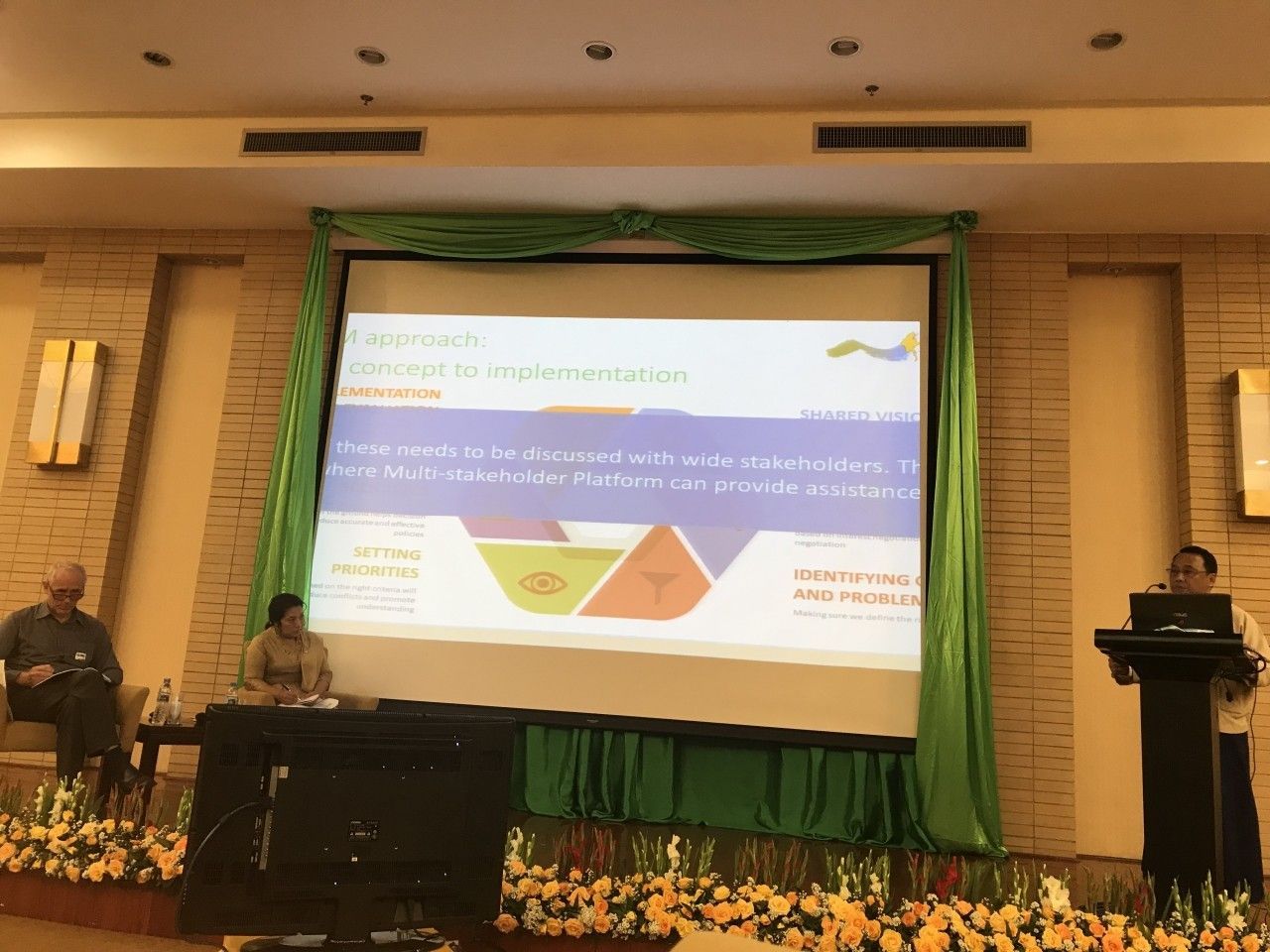
3. U Zaw Min Htut – YCDC
“Inclusive Water Supply Management needs Public Private Partnerships (PPPs) that include public awareness programs at grass-roots level. We like to share our creative Htee City ‘umbrella’ concept for the city of Yangon to protect and harvest (rain) water in the city. Please contact us to share your thoughts about this Htee City campaign.
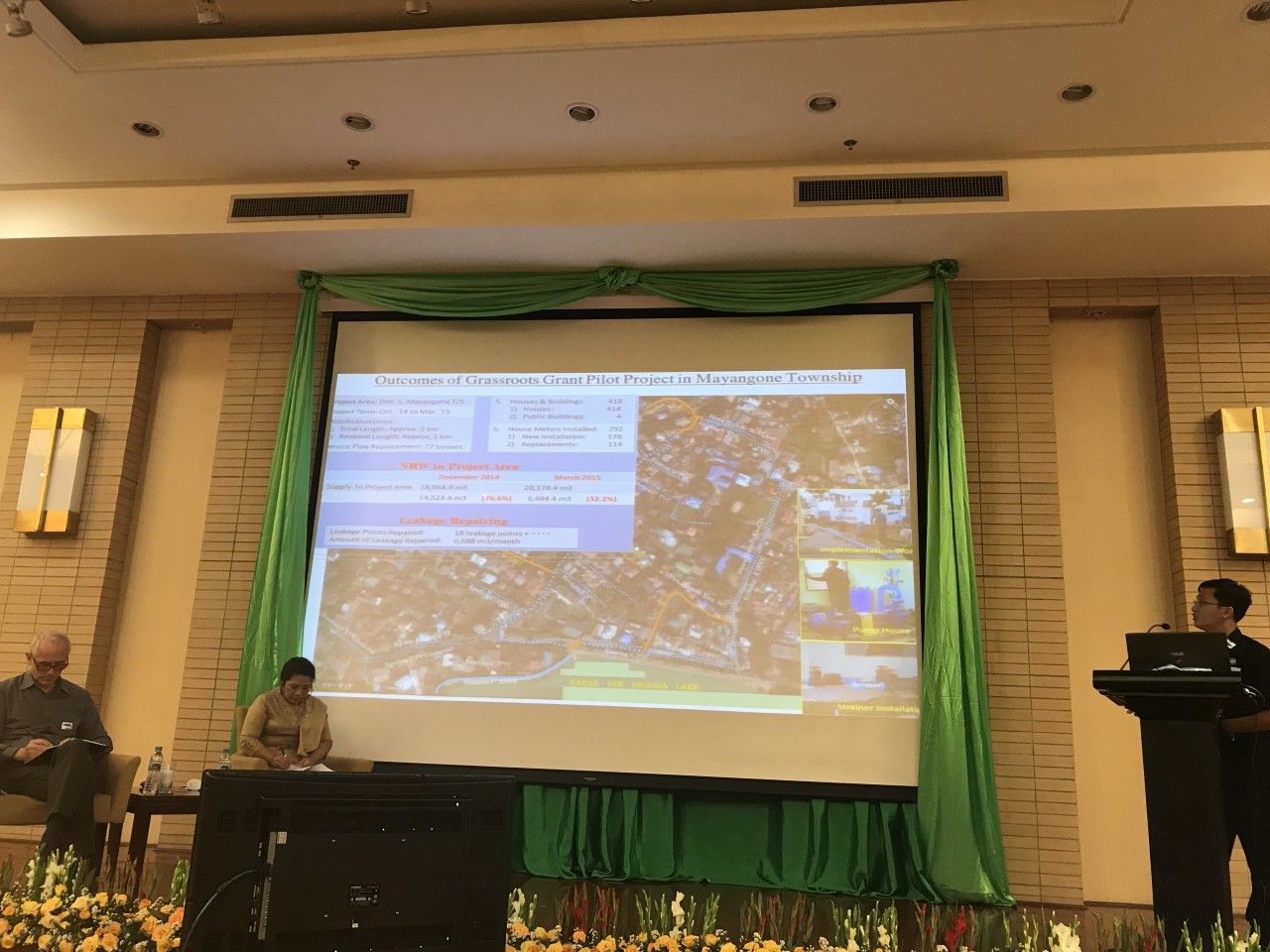 U Zaw Min Htut – YCDC
U Zaw Min Htut – YCDC
4. Dr Win Min OO – DRD – Moali
I would like to share the following two valuable statements: “Water scarcity is a local problem that needs local participation and inclusion” and “Problems related to climate change can’t be solved in isolation and require collaboration”.
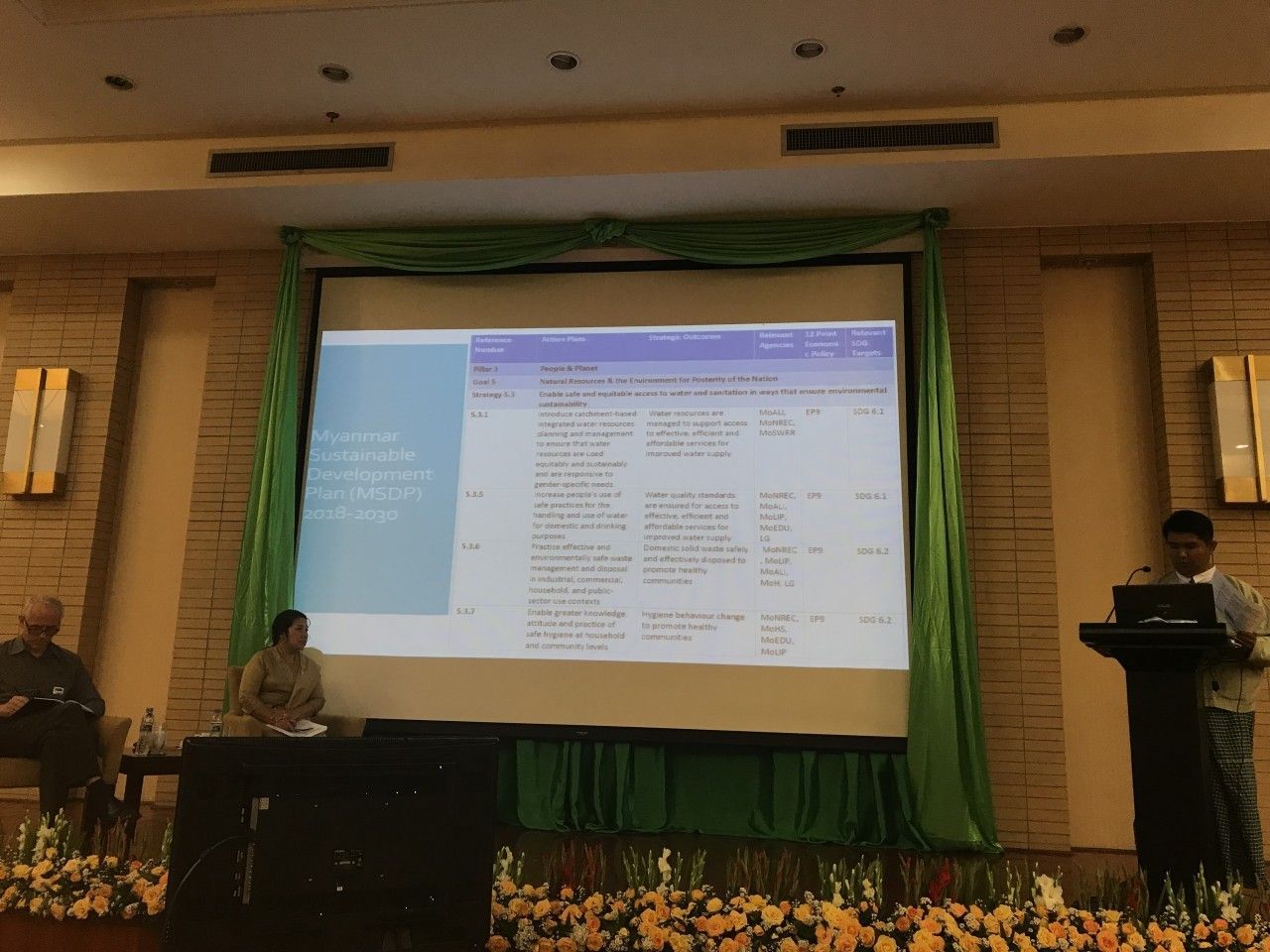
5. Daw Thin Nwe Soe – Thirst Aid
She explained and shared the importance of the Multi Stakeholder Forum within the AIRBM program.
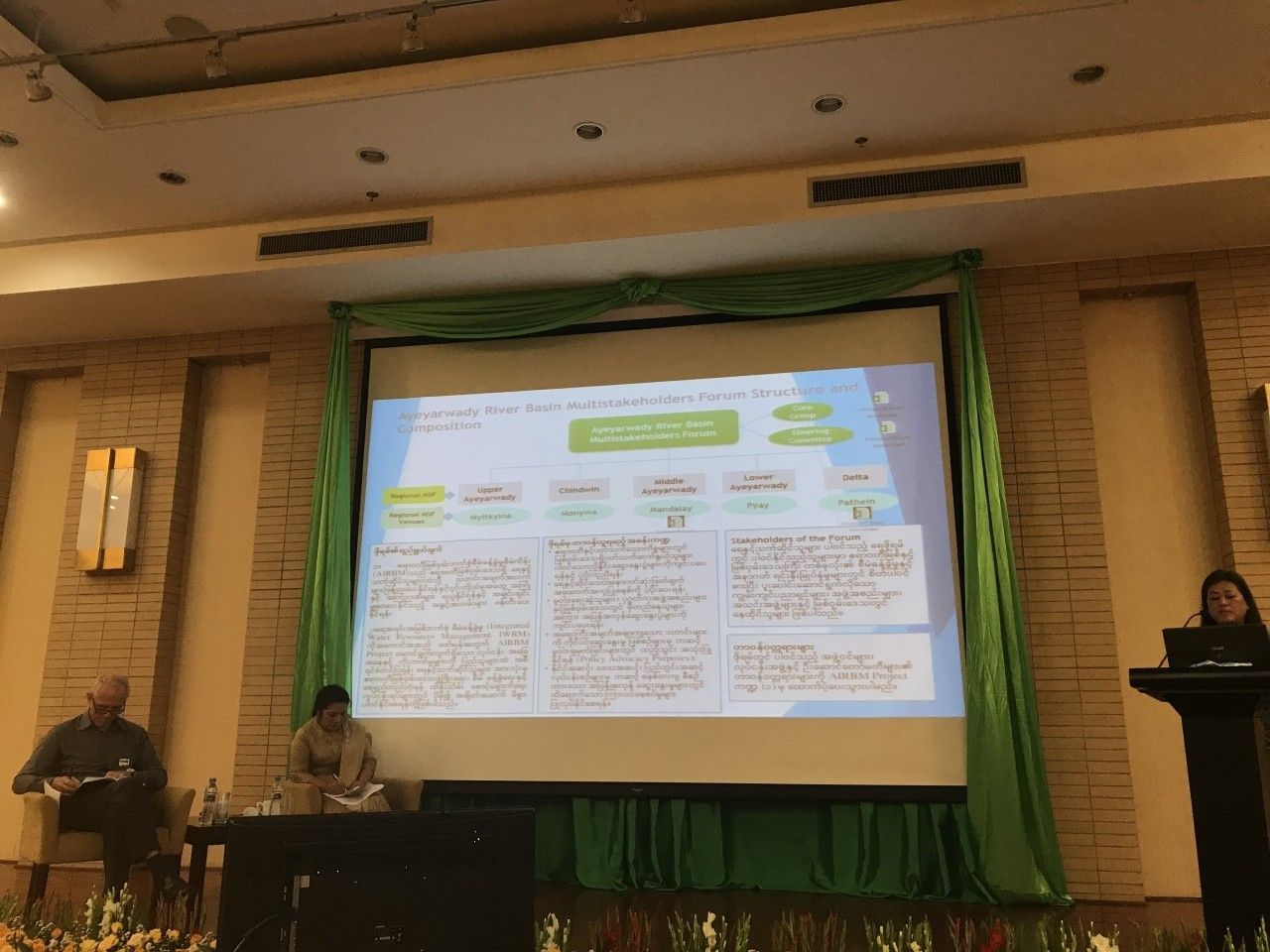 Daw Thin Nwe Soe
Daw Thin Nwe Soe
6. Aye Myat Mon Kyaw – YWP / Water Mothers
She represents the Myanmar chapter of Youth and she is very proud to assist World Water Day 2019. “Its valuable to experience more and more ‘learning by doing’ projects in Myanmar”.
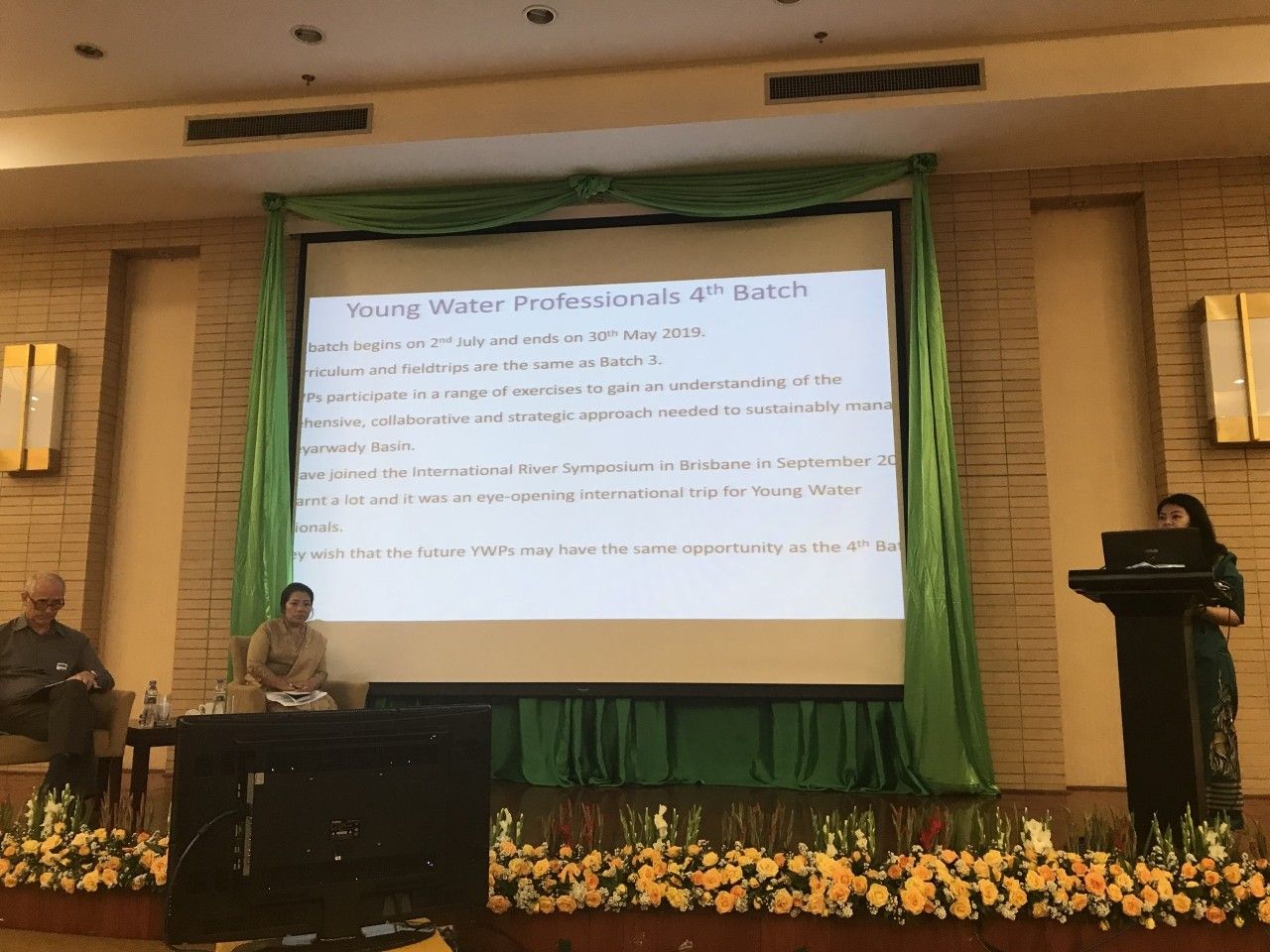 Aye Myat Mon Kyaw – YWP – Water Mothers
Aye Myat Mon Kyaw – YWP – Water Mothers
8. Ms Than Htway – SEI
There are important lessons to learn from local River Basin Organizations (RBO). But there is also so many capacity building (budget) still needed on financial management, human resources and awareness raising. RBO’s are doing important work on protecting biodiversity by empowering local communities. They are supported by Critical Ecosystem Partnership fund.
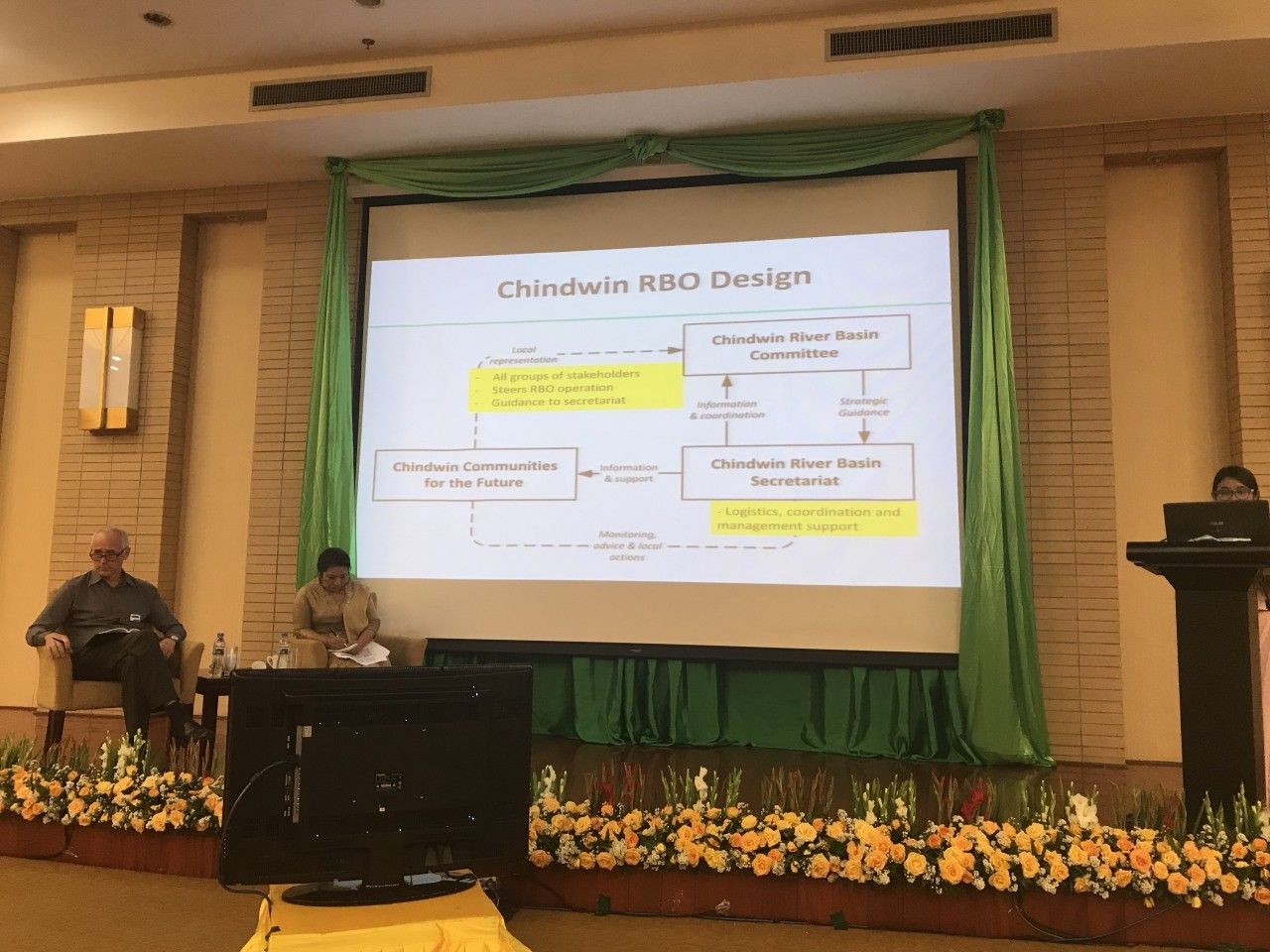 Than Htway – SEI
Than Htway – SEI
Reflections:
This session included many concrete examples about the value (or business case) for true collaboration. The reason why we write about is the importance to share the outcomes with a bigger audience – as most-likely the participants in this session are already like-minded people. We need to speak more in a business-language, and change the narrative for collaboration. Collaboration is for the long-term, and it’s not easy and accepts no short-cuts.
The methodology of multi-stakeholder collaboration should be included (mandatory) into each future project in Myanmar. It’s a similar approach for doing your business in a responsible manner or asses your environmental impact. The only lacking (critical) factor for successful implementation is no budget allocation. Currently there is no Budget line for collaboration – and unfortunately this means no implementation without a Behavioral change, Bold actions or Brave leadership.
Coming back to the important opening statement of Dr. Anna Shwe Hluan: “Collaboration is a mind-set, and it’s easier said than done. “It’s crucial to understand the multi-stakeholder groups at different levels (citizens, regional, union level) and we need to empower people to be able to help themselves”.
We need to include the methodology of multi-stakeholder collaborations into our curriculum (schools, universities, organizations) to be able to accelerate the practice of “SDG (17): partnerships to achieve the goals”. We need a ‘University of Collaboration’.
The Water Agency will continue engaging multi-stakeholders in their activities. We promise to submit a proposal for a multi-stakeholder collaboration training, and you are all invited to join! We will keep you posted.
Collaboration is our business, and most people don’t envy our business. They like our principles, and they like what we do – but most of them see it as a nice to have. The sense of urgency is not there, and the International Water Sector is still working in silo’s trying to solve complex problems. For the last ten years the International Water Sector shared the same priorities during its summits: 1. lack of diversity (male-female), 2. Involvement of young people, and 3. cross-sector collaboration.
Especially in Myanmar there is good progress on the first two priorities, but on the third priority we need to lead by example. To conclude besides the 4P’s (People, Planet, Profit, Partnerships) we need also 4 B’s to make collaboration happen: Behavior change, Budget allocation, Bold actions (now), Brave leadership

